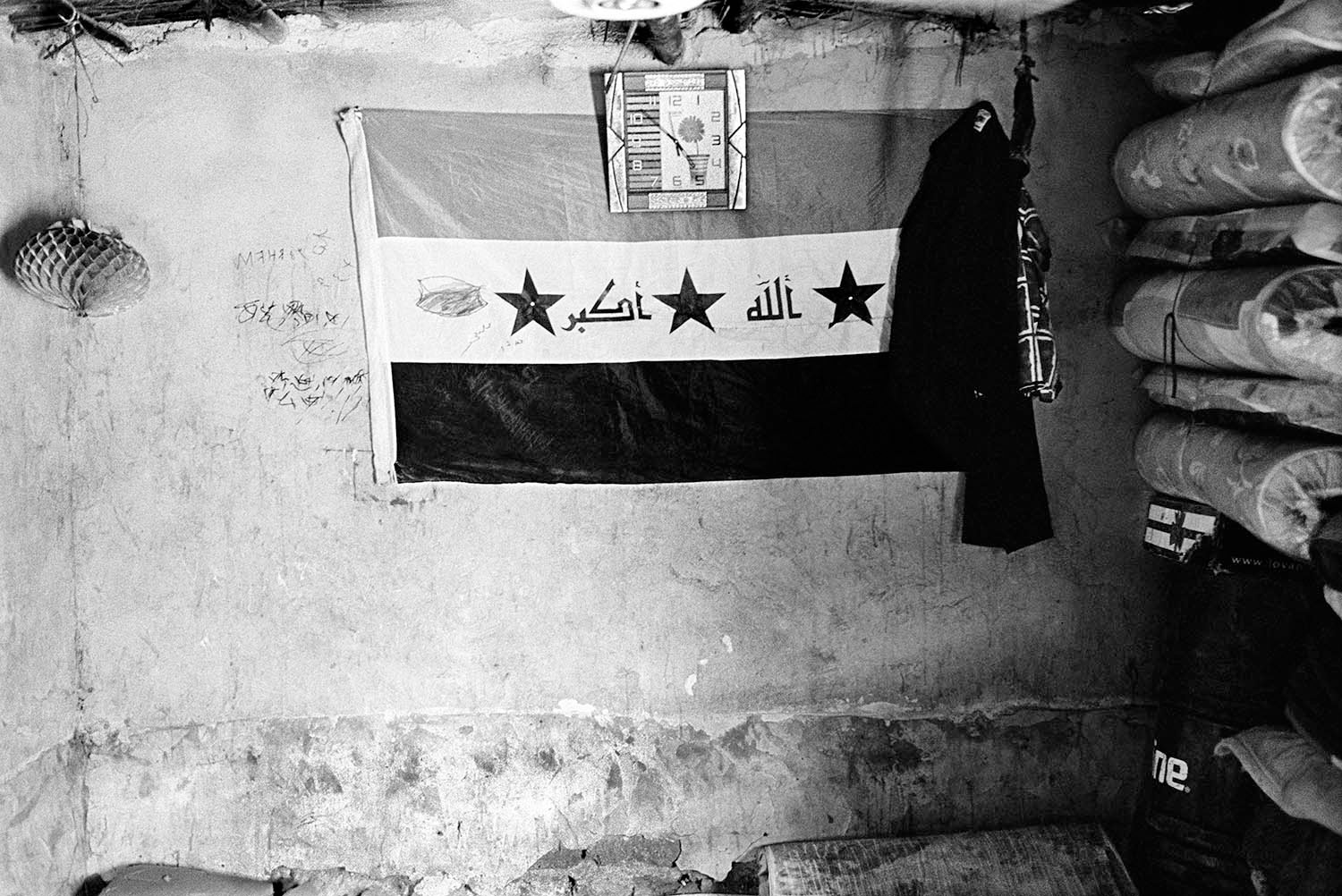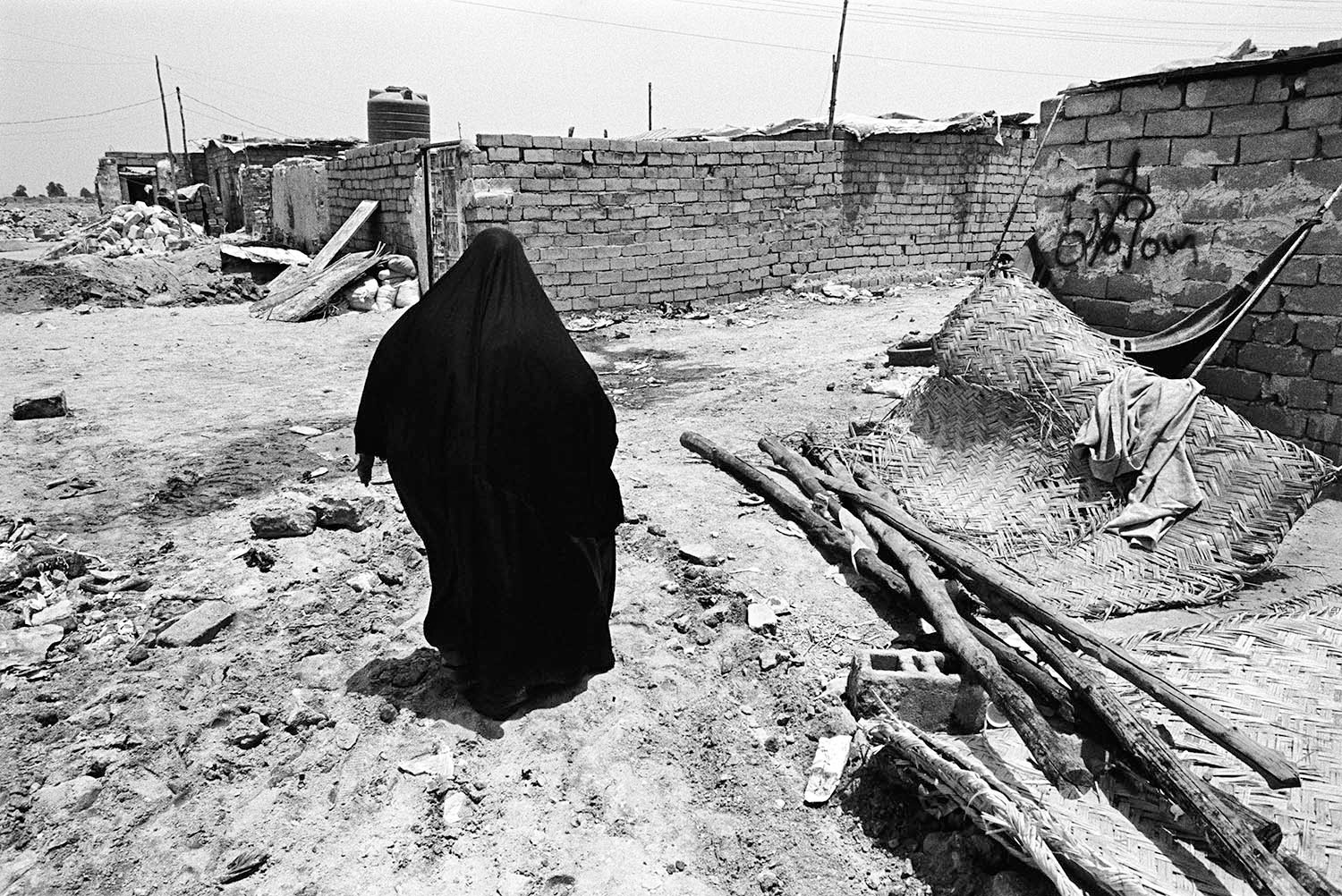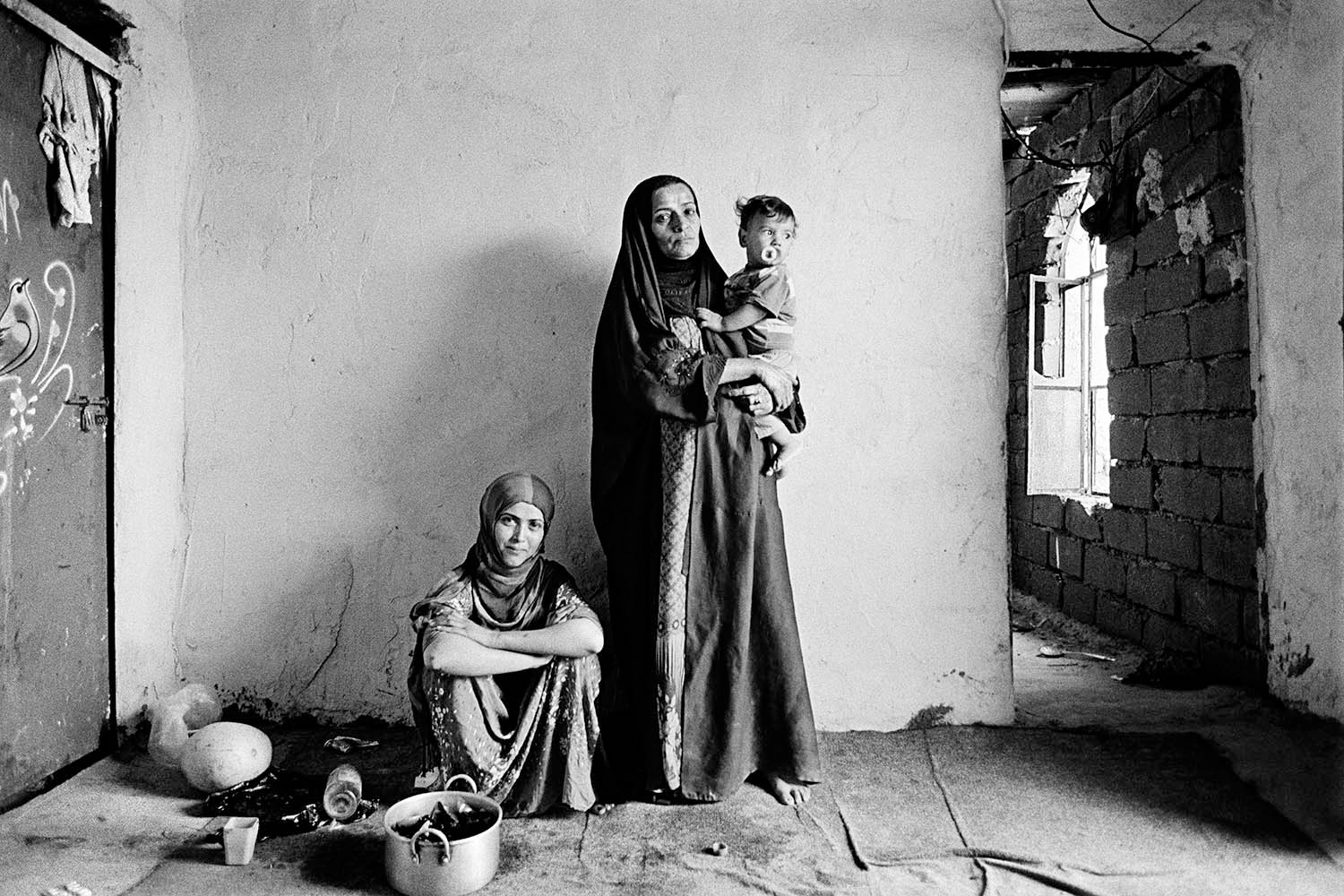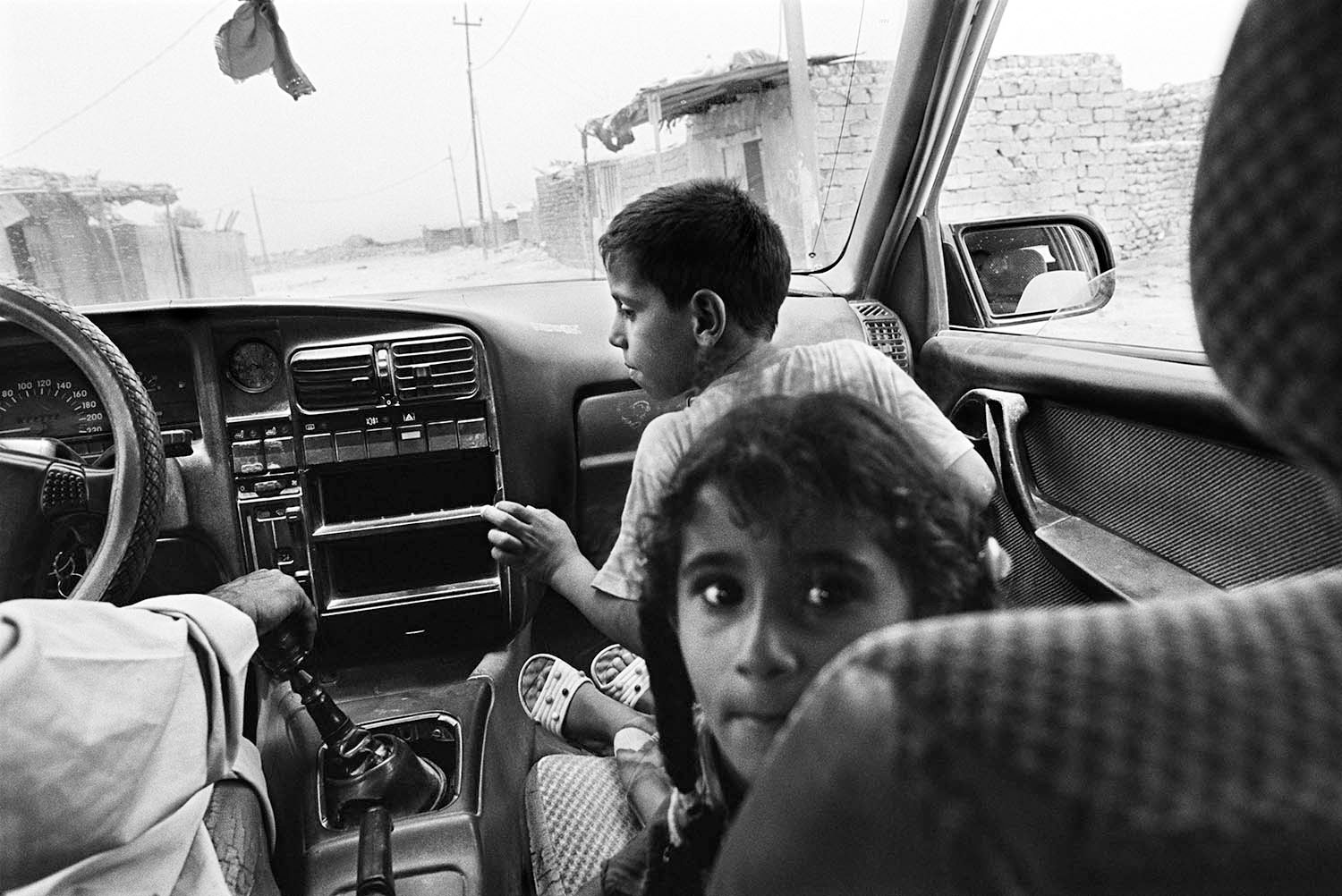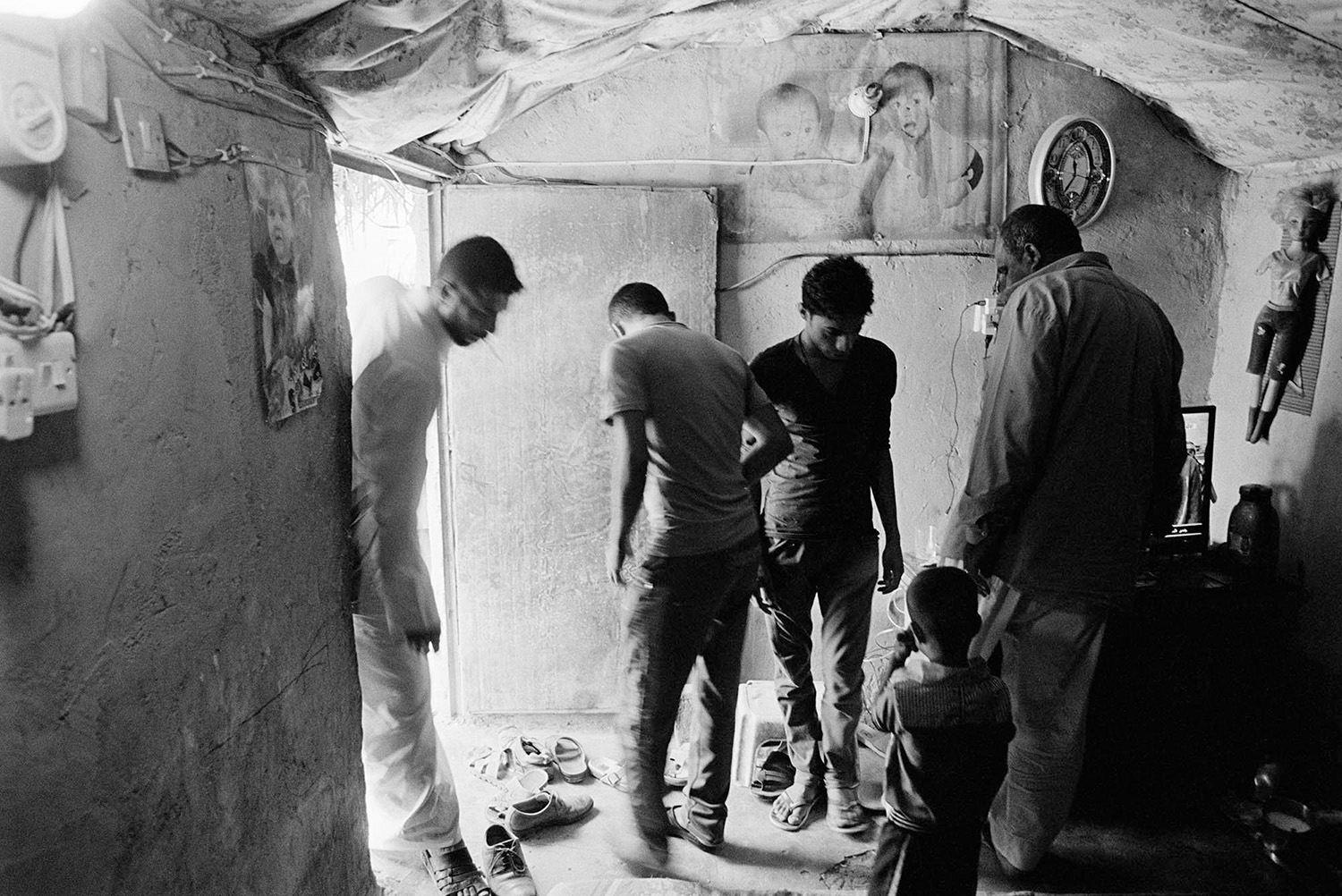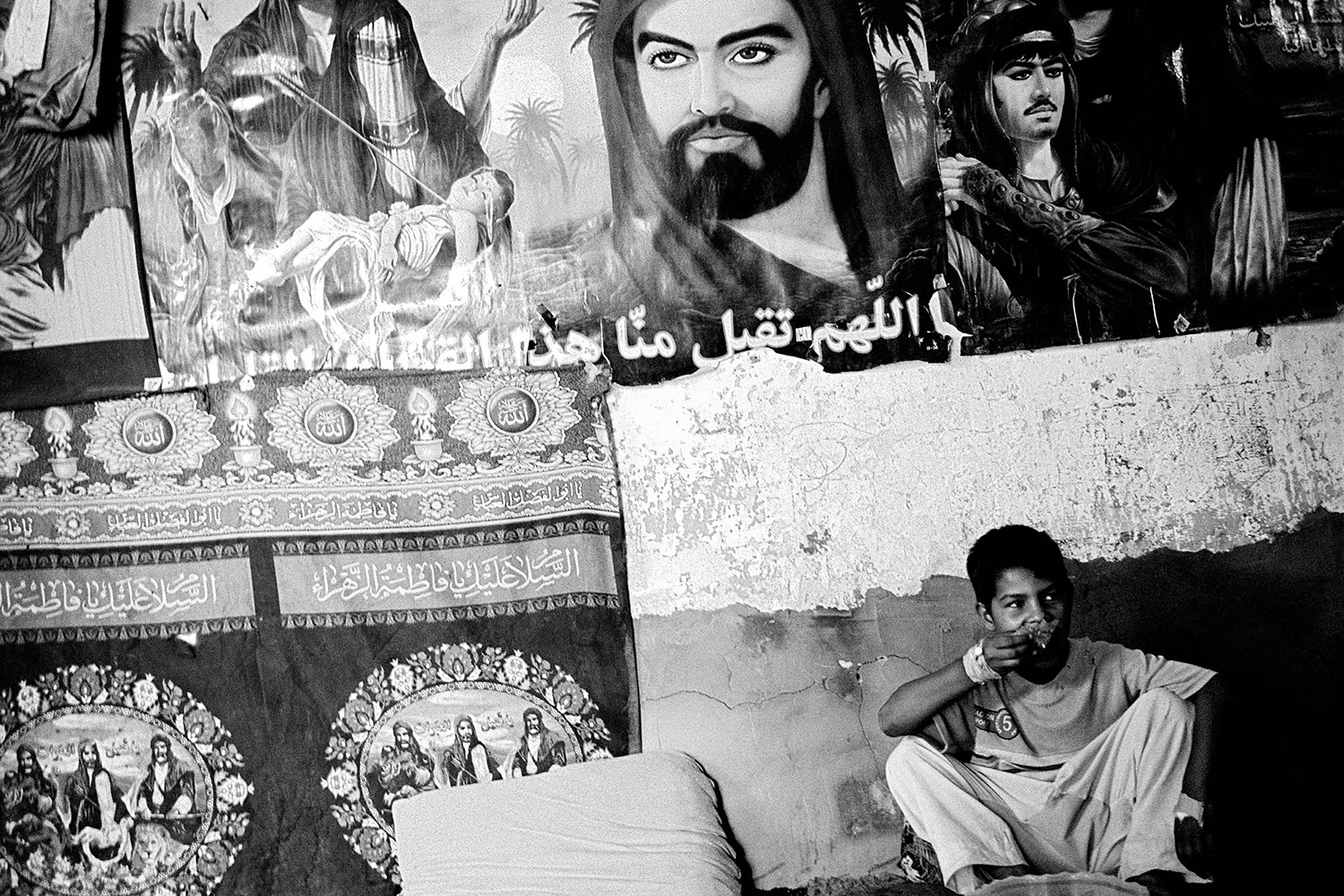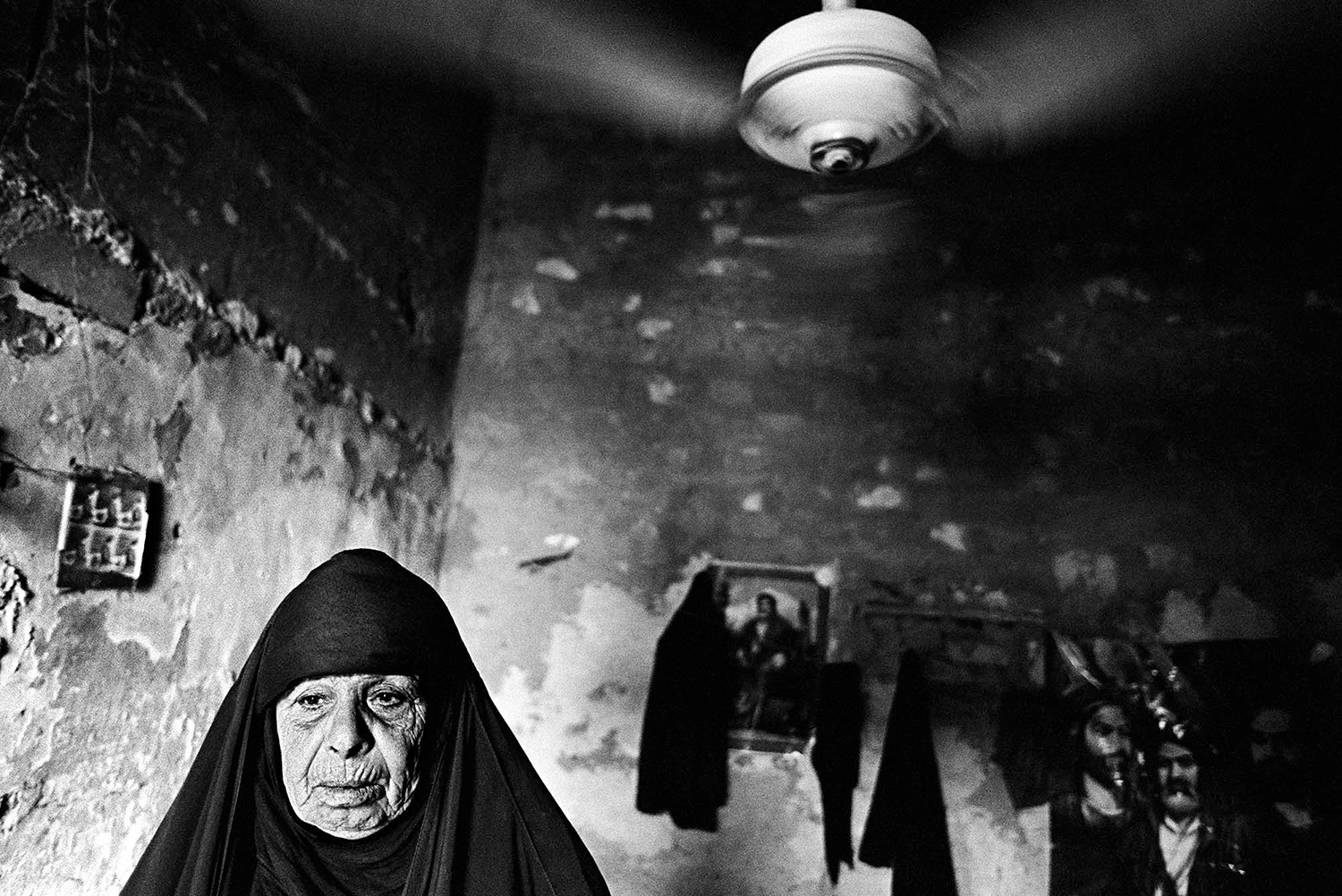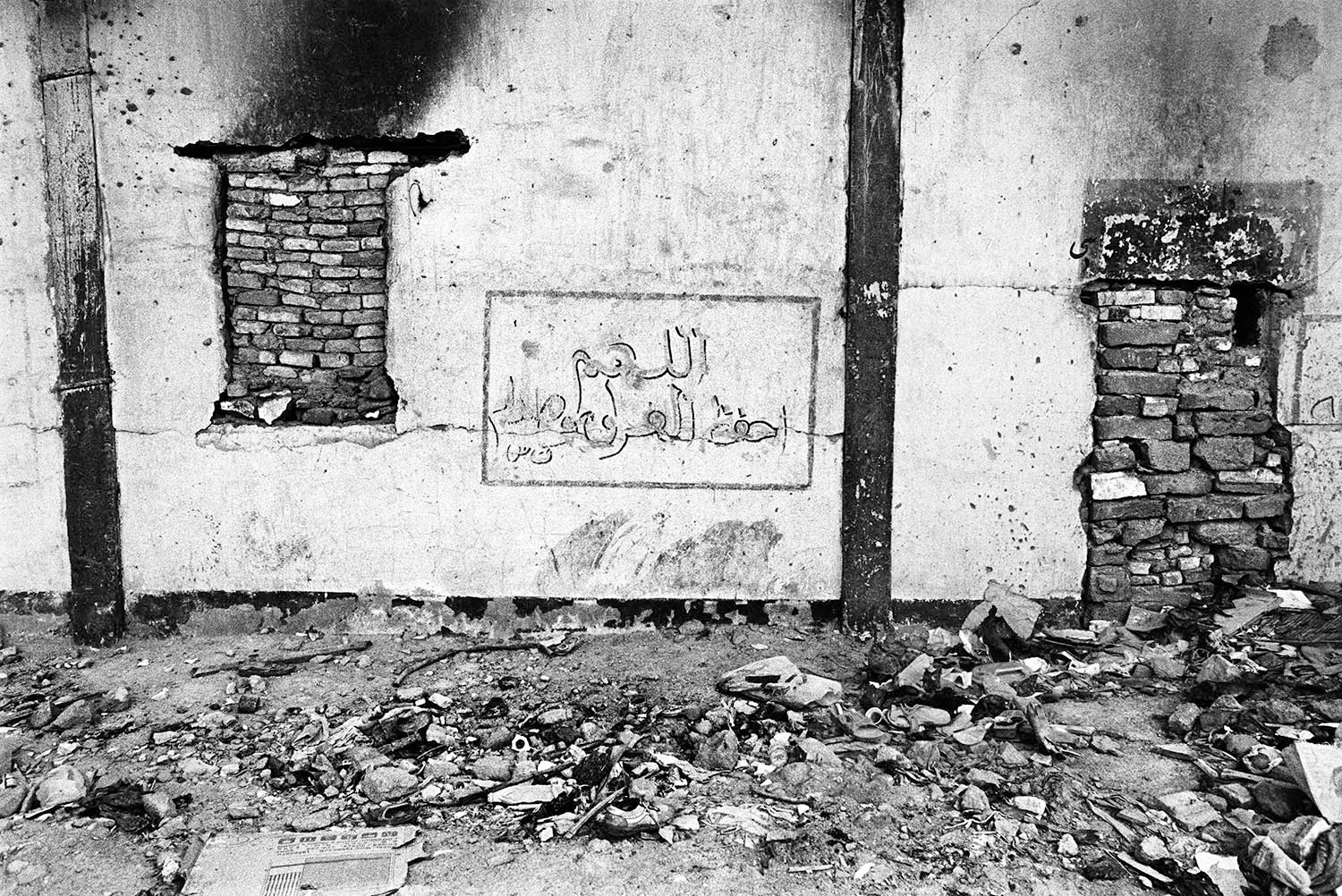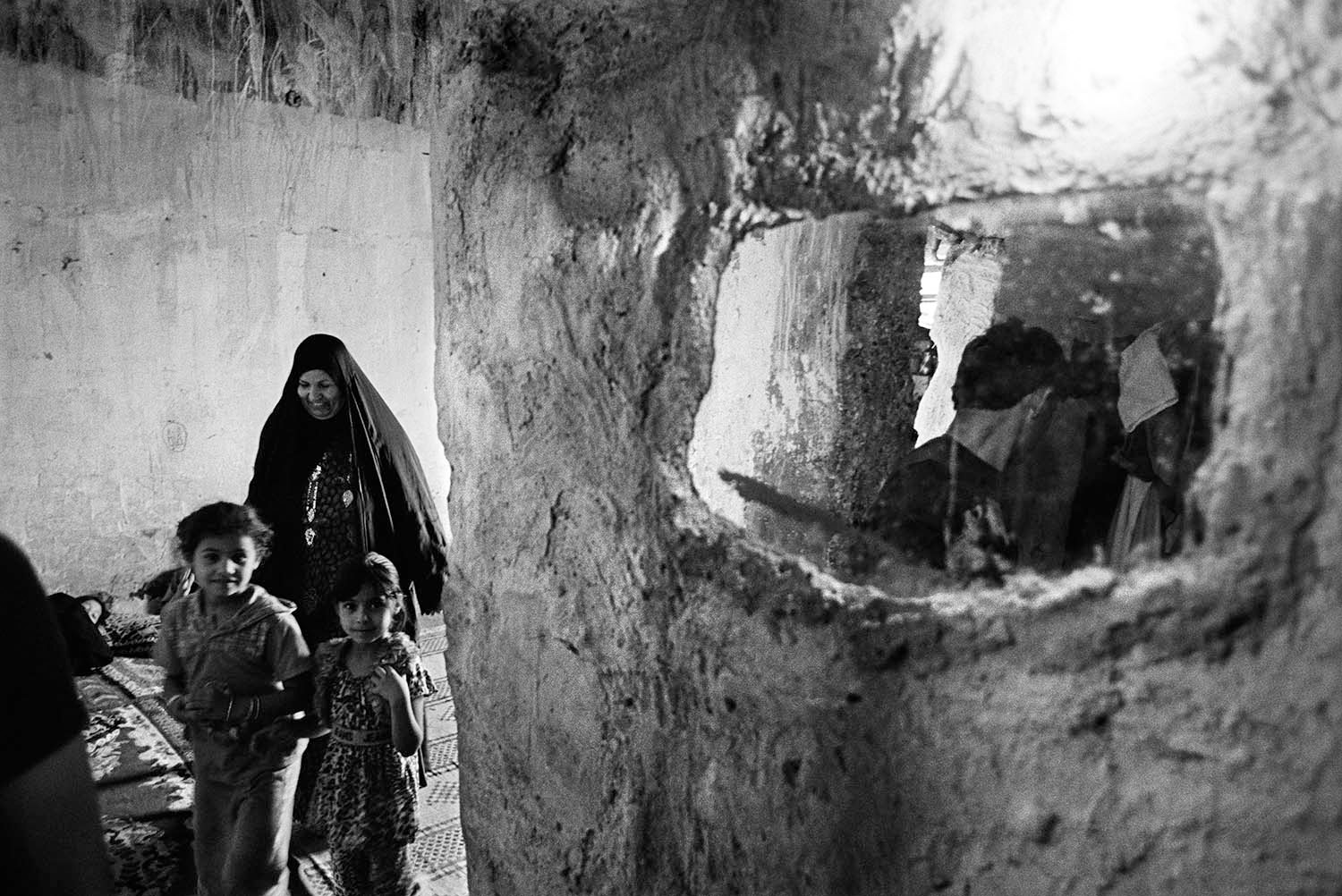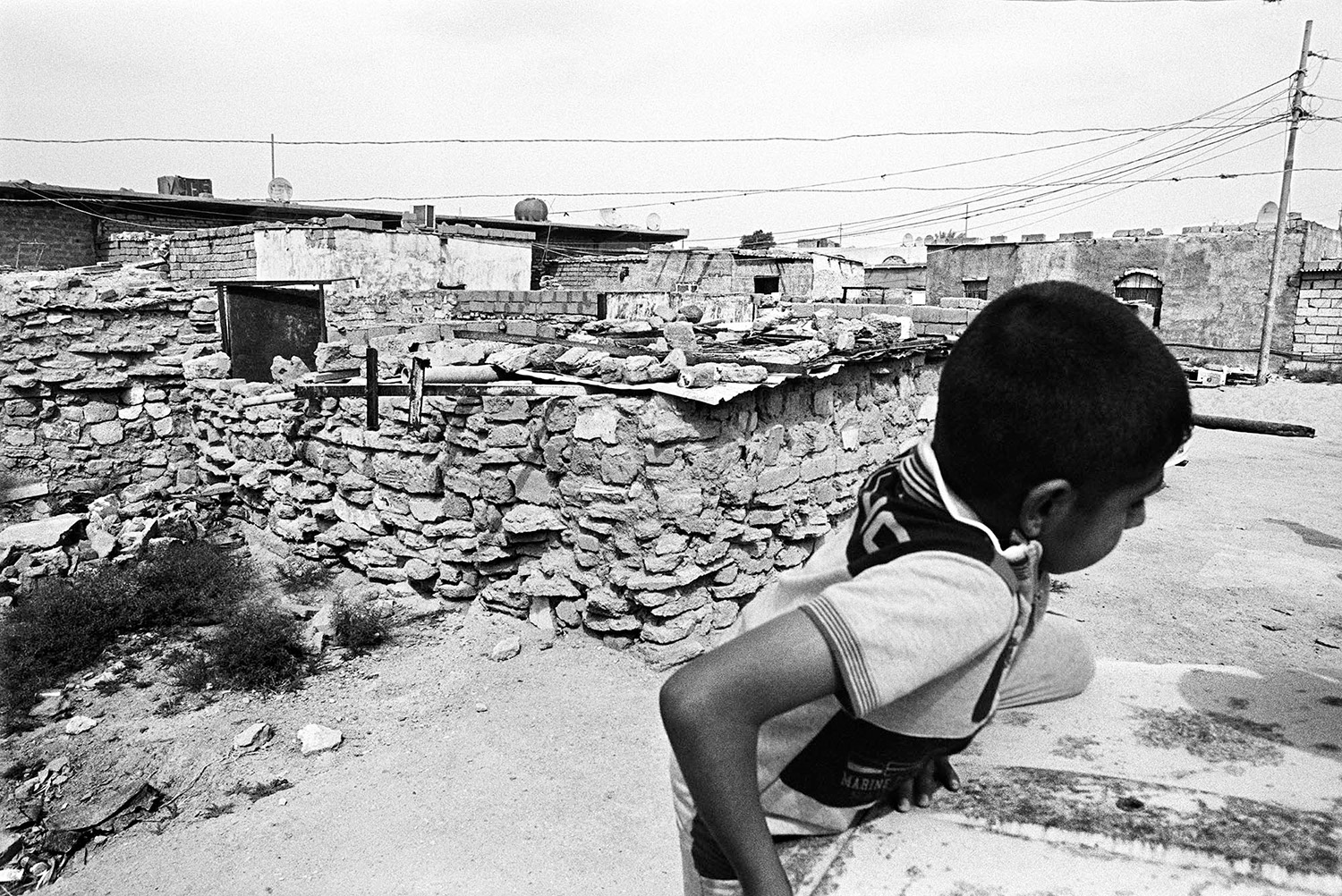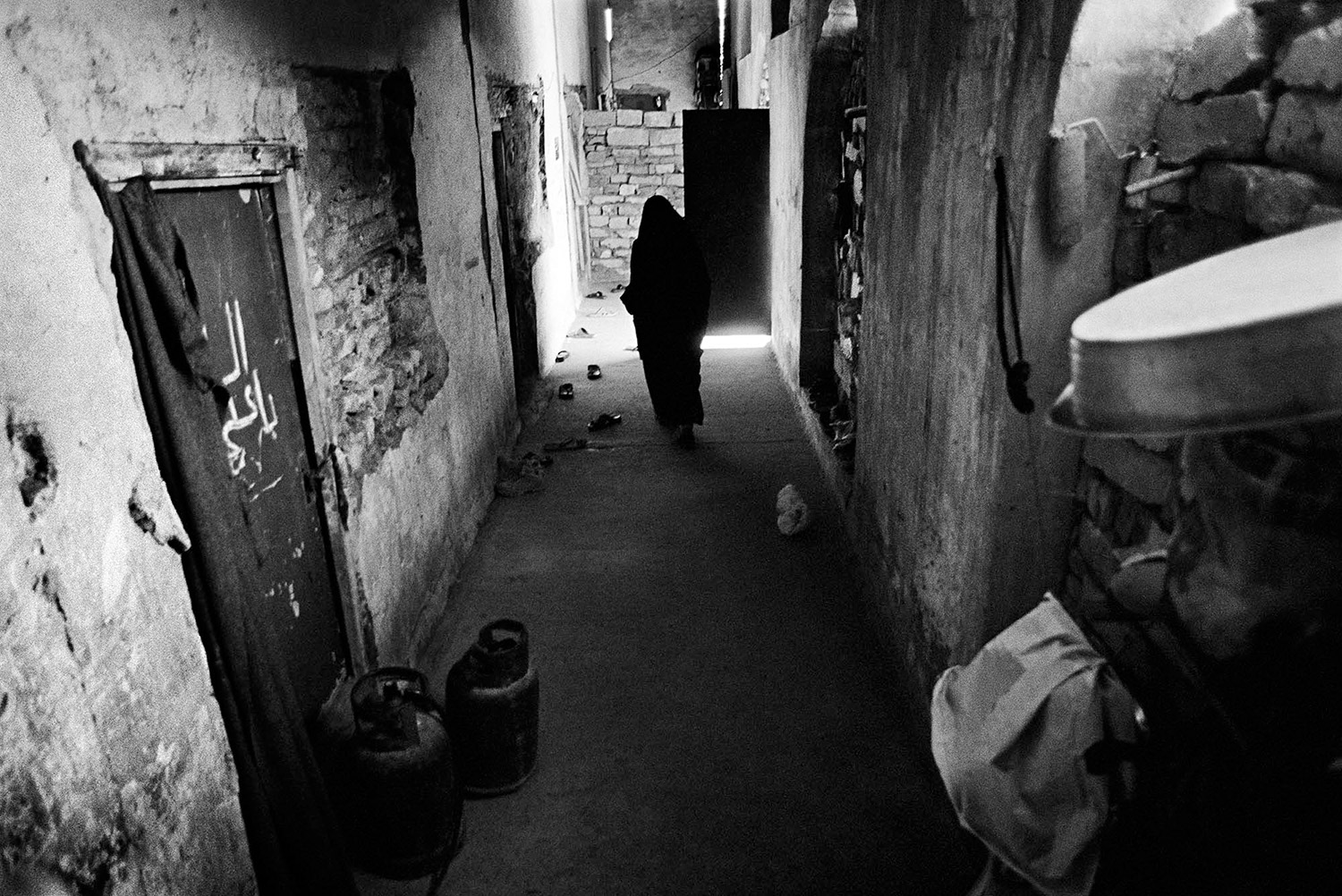iraq
BETWEEN THE EARTH & THE SKY
Piles of broken bricks and scrap metal litter the ground throughout forty-six-year-old Bassim’s ramshackle neighborhood on the outskirts of Al-Zubair in southern Iraq. It is a dismal enclave. A small plastic pipe the width of a garden hose winds down a dirt pathway. It serves as one of the only sources of water for many families. The burned-out shell of a destroyed car is filled with trash. It permanently rests in a spot where people congregate. A group of children play a disorganized game of football in a dusty field in the background. They don’t venture much farther away. After the fall of Saddam Hussein in 2003, life changed dramatically for Bassim and the one hundred Dom (or so-called gypsy) families in his area. “Before, we were better than now,” Bassim says. “We had the freedom to do what we wanted to do then. Now we can’t move. We can’t go anywhere. We are trapped here. The people who live around us are always causing problems for us. They don’t allow us to work or open up small shops. Most of us have the ‘Exception’ stamp in our documents. When people see the exception stamp, they deny us everything.”
War and sectarian violence have ravaged Iraq for decades. Ethnic and religious minorities have historically been the targets of discrimination and human rights abuses. Displaced and persecuted communities have ebbed and flowed in and out of the country. Iraq currently has one of the most progressive nationality laws in the Middle East. Yet even though hundreds of thousands of formerly stateless people have reacquired Iraqi nationality in recent years, statelessness continues to paralyze the lives of several minority groups. Over two hundred thousand Faili Kurds had their Iraqi citizenship stripped from them in 1980 and were expelled en masse to Iran. In recent years, they have returned to Iraq but many still struggle to reacquire the nationality promised to them. The Ahwazi are an ethnic minority originally from Iran. Oppression during the Iran-Iraq war forced many Ahwazi to flee to Iraq where they were welcomed. They have adopted Iraq as their new home but continue to be seen and treated as foreigners.
Despite their deep roots in Iraqi culture, society and history, Iraq’s Dom are one of the most persecuted groups in the country. In the late 1970s, Saddam Hussein offered them Iraqi nationality and supported their settlement in areas like Baghdad, Diwaniyah and Basra. The Dom held a well-defined role within Iraqi society, which the Ba’ath regime tolerated. They worked as dancers, singers or musicians entertaining people at parties and gatherings. They sold alcohol, created handicrafts and were fortune-tellers. And behind closed doors they worked as prostitutes for the elite and ordinary citizens alike, out of sight of judgmental eyes in the religiously conservative country. For the Dom, Iraqi nationality was dependent on fulfilling these needed yet shunned professions. Even then, the citizenship issued to them was an empty promise that would leave them discarded and defenseless after 2003.
“Everything changed after 2003. People stopped hiring us, militias destroyed many of our homes, our children cannot go to school, we cannot travel. This is the only place they will let us live. Here we are like prisoners, and they stopped renewing and providing nationality documents to us. Do you call this citizenship?”
To receive most forms of identification in Iraq, it is necessary to trace ancestry back to Iraq’s 1957 census. Many Dom are unable to prove this lineage and as a result are denied any number of documents. Nationality certificates issued to the Dom by Saddam Hussein and afterwards contain the clearly stamped words, “Exception from the Iraqi Nationality Laws.” Not only has the stamp singled them out for harassment and discrimination, but Iraqi authorities have also used the exception to reject the Dom from obtaining or renewing documents altogether, claiming their nationality is not legitimate.
The fall of Saddam Hussein in 2003 gave rise to increasingly religious political parties and Islamic fundamentalists who condemned the Dom’s lifestyle. Militias have targeted and attacked Dom communities throughout Iraq, destroying their settlements and displacing hundreds of families. Most lost their livelihoods and immediately became susceptible to exploitation. They live in grinding poverty as squatters in segregated slums where they are under the constant threat of eviction. They are often denied access to government services and children do not attend schools because of poverty or discrimination.
"When we apply for documents we ask, 'Why do we have to go to the foreign department when we have lived in Iraq all of our lives and have iraqi documents?' They look at our documents, see the exception stamp, know we are from the gypsy community and say to us, 'Well, you are not iraqi.'"
Two hundred and fifty miles north of Basra, outside the city of Diwaniyah, forty-two-year-old Salim points toward the other side of the settlement where he lives. More than half the Dom abandoned the village after militias attacked it in 2005. The frame of a doorway and several free-standing walls are all that remain in the area where Salim points. There is no water in the settlement. A tanker truck comes once a week. In the afternoons, the trash-ridden, dirt streets are barren. There is barely a sound in the village, only a light wind swirling and an inescapable sense of desolation.
“We feel like we are not Iraqi. We feel discriminated against,” Salim says. “People say to us, ‘You are a gypsy. You are not Iraqi.’ But we are normal people. What have we done? When someone commits a crime, you apply the law. But with us, they never apply the law. They treat us as if we are different.”



